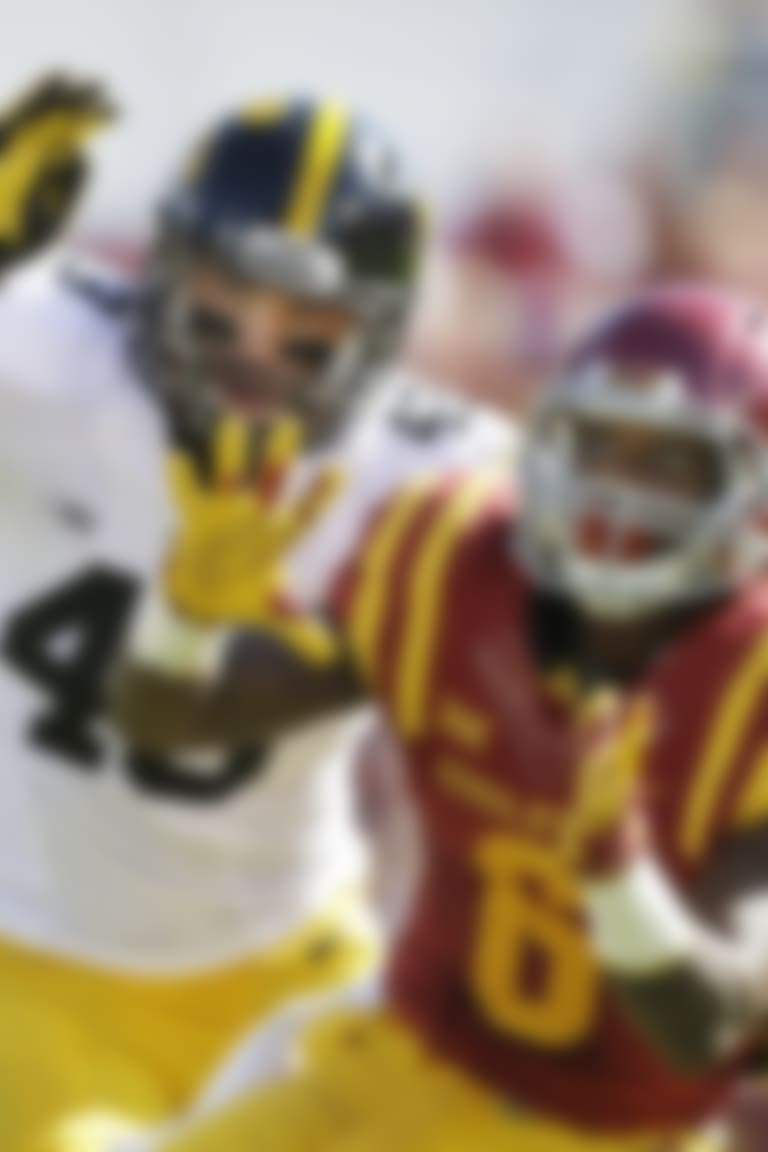Josey Jewell's toughness has him knocking on the NFL's door, but it's the linebacker's tenderness that has given hope to a young cancer patient fighting for his life.
By Dan Parr | Published Dec. 14, 2017
IOWA CITY, Iowa – In the oncology unit at the University of Iowa Hospital, a palpable buzz could be felt as Hawkeye football players were making a pre-Christmas visit in 2016, bringing gifts to young patients.
Parker Hopkins, who had just celebrated his second birthday two months earlier, was in room No. 88, along with members of his family. He was worn down from his latest chemotherapy treatment and wanted to see Herky, the Iowa football mascot.
Instead, Josey Jewell walked into the room and unknowingly right into Parker's life.
"Nobody in the room knew exactly what to say," said Kiefer Hopkins, Parker's dad and a lifelong Hawkeyes fan who was starstruck when he saw the 6-foot-2, 236-pound Iowa defender.
They had never met before that day, but Jewell talked to the family as if he had known them for years.
The hulking middle linebacker knelt next to Parker and handed him a gift. It was a remote control car, one that lost a wheel a week later when dad accidentally stepped on it.
That day in the hospital, a connection sparked between Josey and Parker, an odd pairing of sorts, but two people who found inspiration in each other and who share much more in common than what appears at first glance.
Jewell will go down as one of the greatest linebackers in Iowa history, but he's been an underdog all his life. The Iowa farm kid named after Clint Eastwood's brusque character in the film The Outlaw Josey Wales was the two-star recruit no one wanted.
Parker, named after Peter Parker, the comic-book character who becomes Spiderman, wasn't given much of a chance either, having been diagnosed with cancer just 22 months into his life. He's too young to comprehend what he's up against, but knows how to fight, and he knows Jewell is by his side battling with him.
Two superheroes teaming up to beat the odds. Together, they're out to prove no one fights alone.
On Aug. 17, 2016, Parker was diagnosed with Acute Myeloid Leukemia, a form of cancer that starts in the bone marrow. Following four rounds of chemo, he went into remission shortly after his first meeting with Josey. Doctors told Kiefer and his wife, Jordan, there was a 3 percent chance of a relapse.
Almost a year to the day of his diagnosis, doctors informed the Hopkins family Parker had in fact relapsed, news that Kiefer says was harder to hear than the original verdict.
In need of a bone marrow transplant, Parker would be spending football season in the hospital. Texts from Josey asking when he could visit the toddler followed soon after the news was posted to Parker's Facebook page, and not long after that, Josey returned to see his ally in their fight.
The patient and player were with each other constantly, whether face to face, hand in hand, or just in thought.
During "The Wave" – a tradition at Iowa's Kinnick Stadium where fans, players and coaches from both teams take a moment between the first and second quarters to acknowledge the kids watching from their hospital rooms overlooking the field – it was Parker whom Josey was thinking about, trying to spot his friend from his 11th-floor window.
This past fall, Parker constantly had Josey on his mind, too, as he recovered from an Oct. 9 transplant that was made possible through a bone marrow donation from Maddux, his older brother by two years.
Doctors told the Hopkins family that children have a difficult time getting out of bed after transplant surgery. But Parker was up to the challenge.
During his hospital stay, he willed all the strength in his little body in order to walk over to the window each day, point to the football field and say, "That's where Josey plays."














